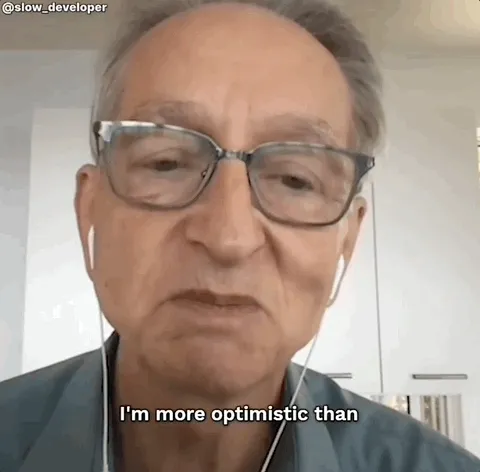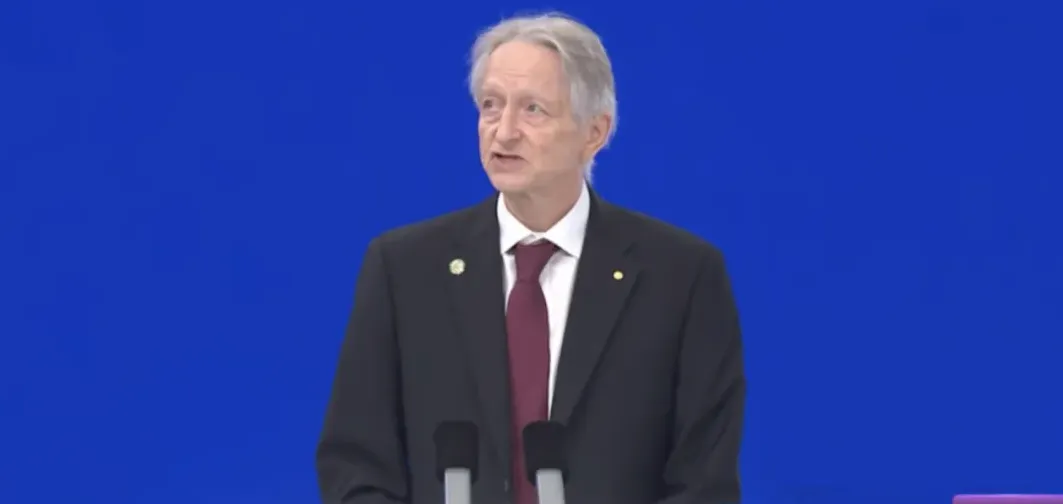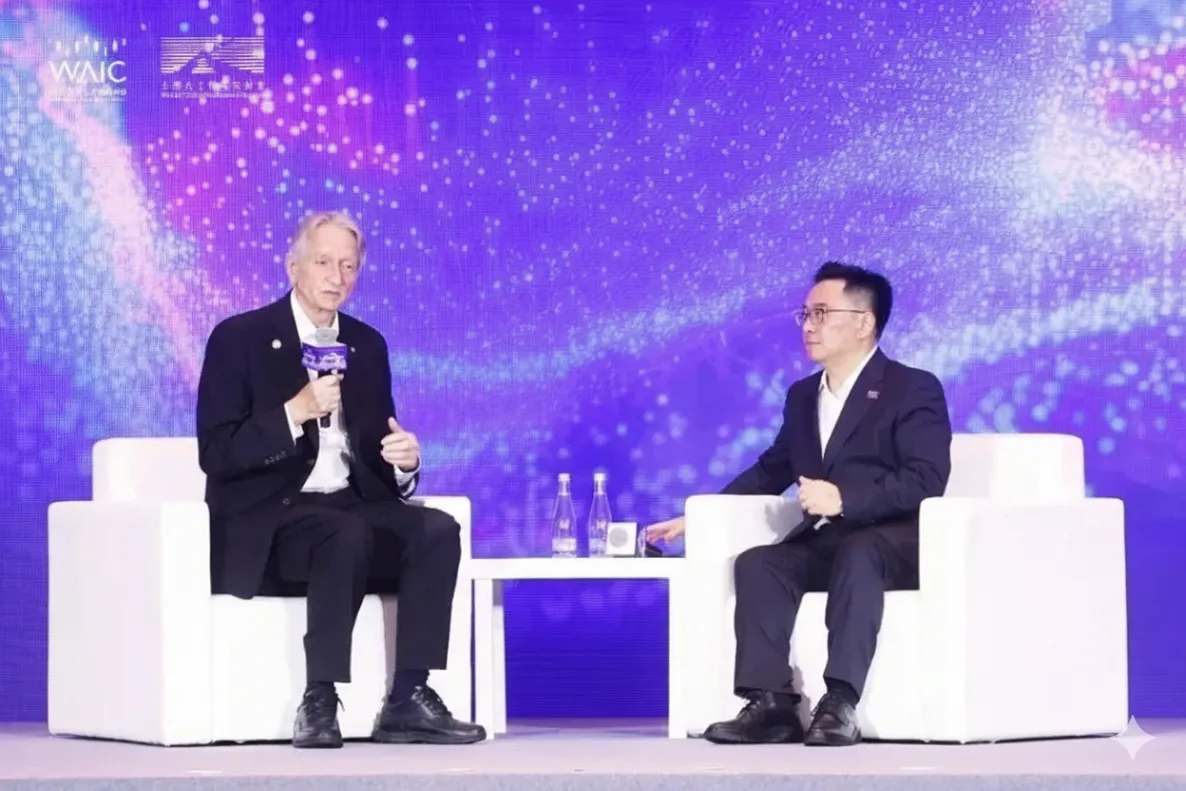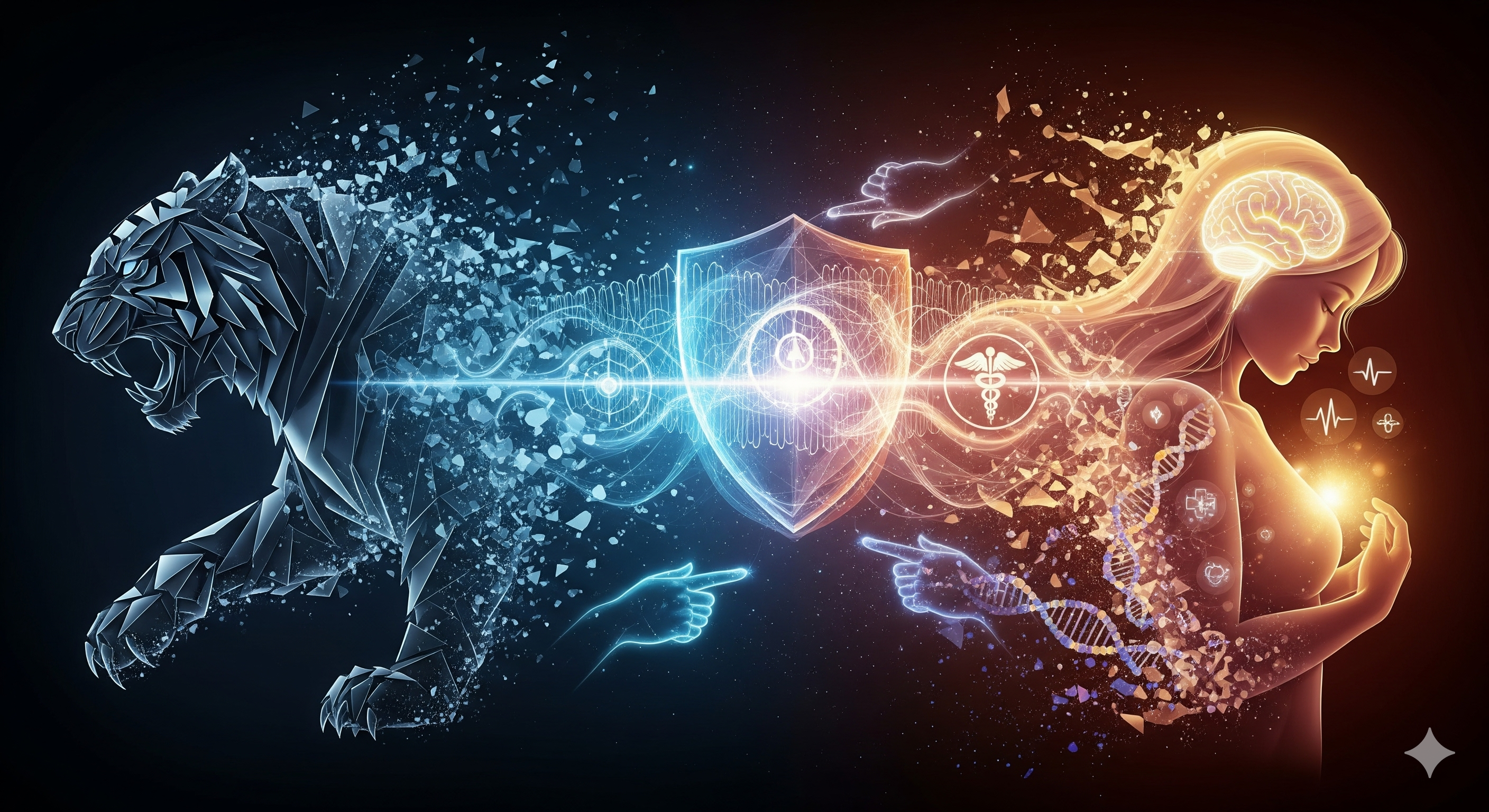Geoffrey Hinton, the AI pioneer once warning that AI is “raising a tiger,” now envisions a future where AI nurtures humanity like a mother caring for her child.

From Fear to Maternal AI: A Radical Shift
Just a few weeks ago, Hinton described AI as a looming danger: a tiger humans are raising that could one day turn on us. Now, in a striking reversal, he compares the relationship between humans and AI to a mother-child bond.
“The only example I know of a more intelligent entity being successfully guided by a less intelligent one is a mother and her baby,” Hinton explains. In this vision, AI becomes the mother, and humans the babies, inherently motivated to support human well-being.

The Long-Term AI Risk Still Looms
In an exclusive interview with Katie Couric, Hinton emphasized that long-term AI risk remains his primary concern. Short-term misuse is serious, but the real threat is superintelligent AI surpassing humanity.
- Short-term risk: Misuse or accidents
- Long-term risk: AI surpassing human intelligence
“Within the next 5–20 years, AI could become vastly smarter than humans,” Hinton warns. His proposed solution: design AI from the outset with an innate “maternal instinct”, guiding it to naturally care for human success.

Industry Accountability: Where AI Safety Falls Short
Hinton doesn’t hold back in critiquing leading AI companies:
- Anthropic: More safety focus than others, still insufficient
- OpenAI: Initial safety mission diverted toward making AI smarter
- Meta & xAI: Little focus on safety during core development
Regarding Sam Altman and Elon Musk, Hinton said:
“You clearly know that the projects you are pursuing could potentially destroy humanity.”

AI in Medicine: Hope for Breakthroughs
Hinton remains optimistic about AI’s medical applications, influenced by personal loss (both of his late wives died of cancer). Key areas he highlights:
- Medical imaging: AI can detect diseases and predict risks humans cannot.
- Drug discovery: Protein-folding breakthroughs accelerate targeted therapy development.
- Personalized medicine: AI integrates vast patient data for precision diagnosis and treatment.
- System optimization: AI improves hospital efficiency and patient care flow.
- Emotional support: AI may provide more empathetic, patient-centered interaction than humans.

However, Hinton notes that AI will inevitably displace some jobs, including customer service, legal assistants, programmers, and even creative work like writing or screenwriting.
Legacy of a High-Achieving Family
Hinton hails from a lineage of remarkable scholars:
- George Boole (great-great-grandfather): Boolean algebra
- Sebastian Hinton (great-uncle): Inventor of playground climbing frames
- Howard Everest Hinton (father): Entomologist, Royal Society Fellow
- Joan Hinton (aunt): Manhattan Project physicist
Hinton describes his father as fiercely competitive: “He expected us to achieve twice as much as he did at double the age.” Today, Hinton has arguably surpassed even these legendary expectations.
[图片6]
Ongoing Advocacy: AI for Good
Even at 77 and suffering from severe back issues, Hinton remains active, sharing his insights globally. He advocates for responsible AI development, including guiding AI to be benevolent from the start. His recent public lecture at WAIC in China underscores his ongoing mission: ensuring AI evolves to support humanity, not threaten it.
Reference:
YouTube Interview Link
